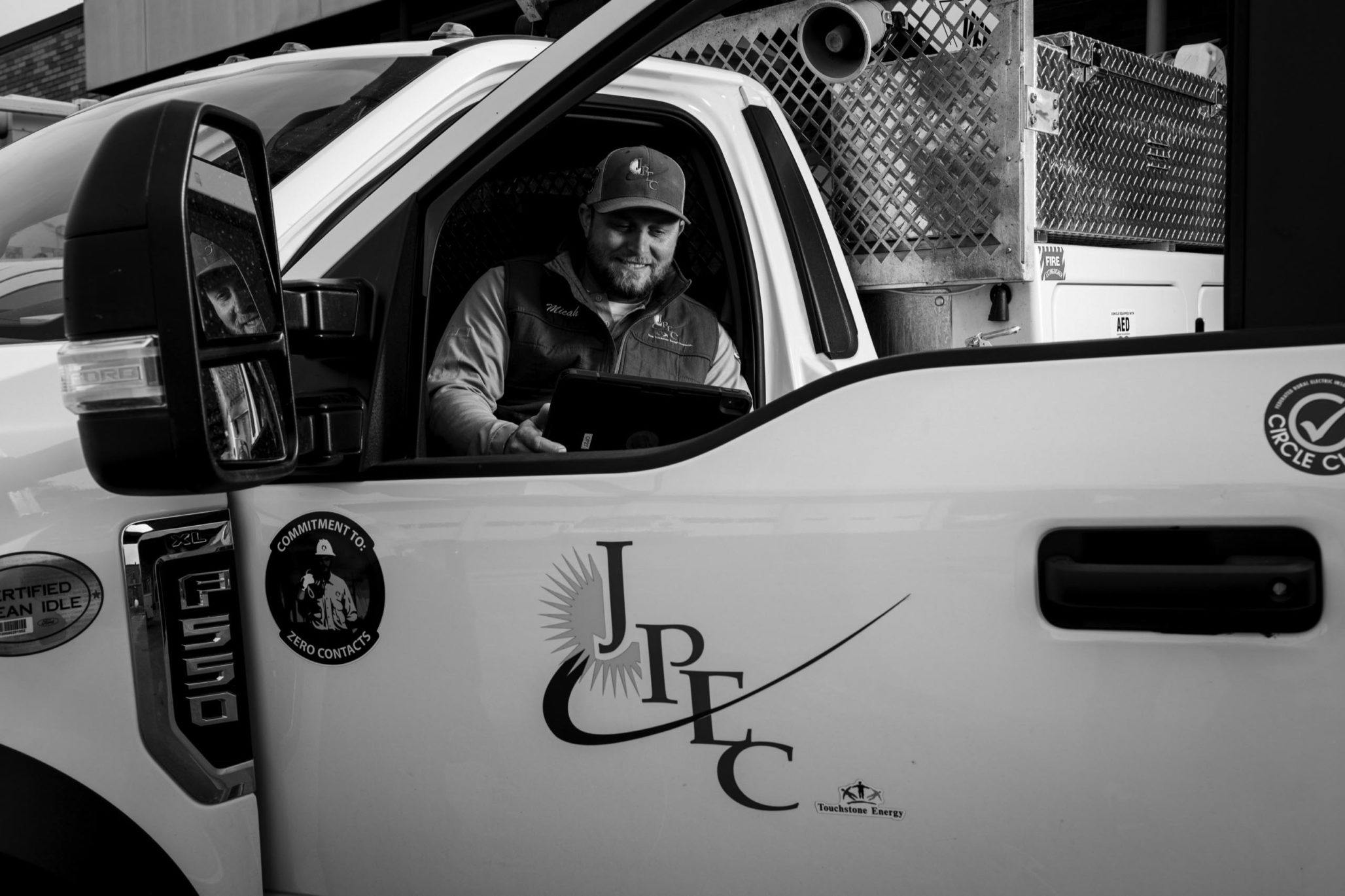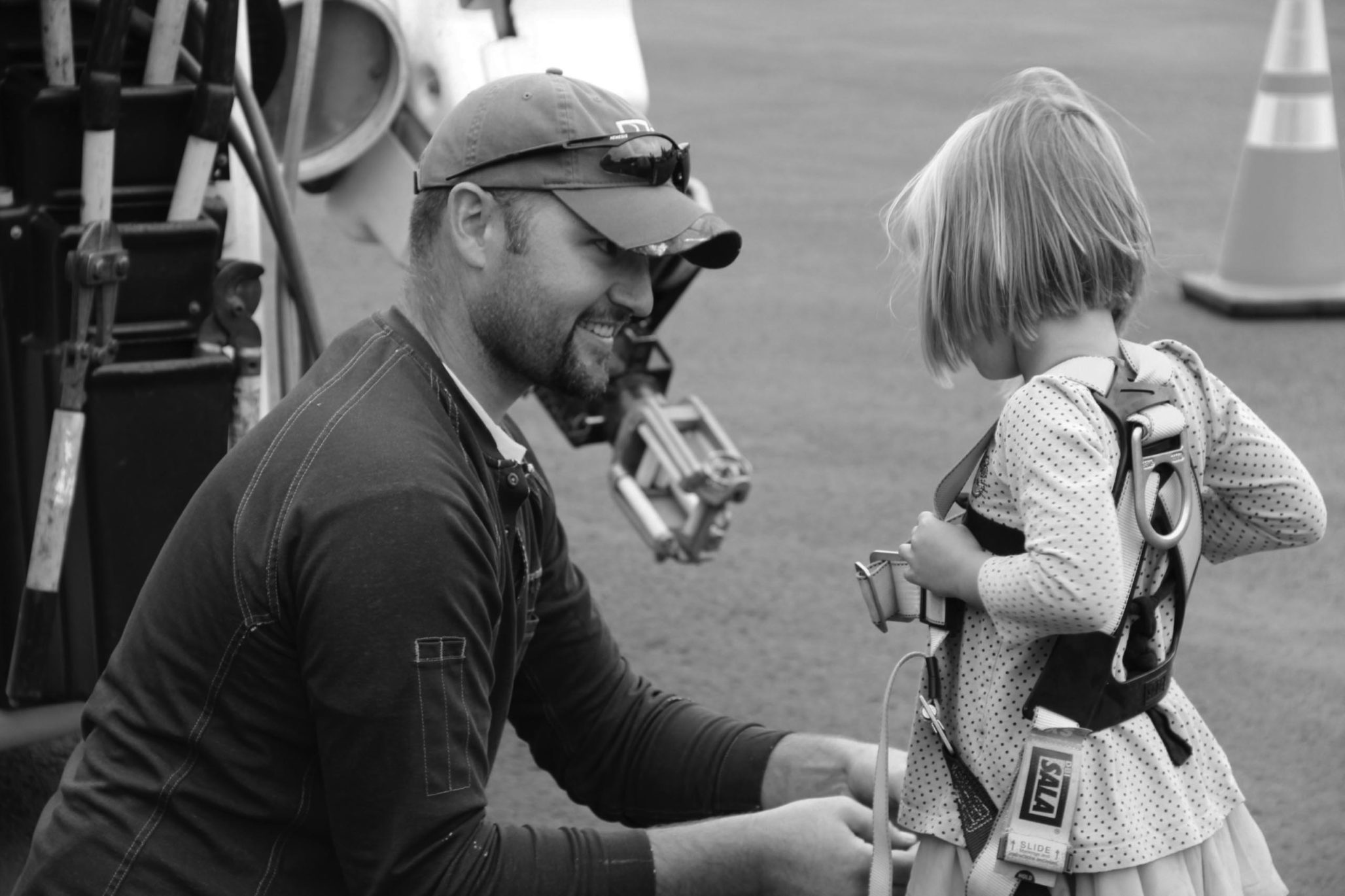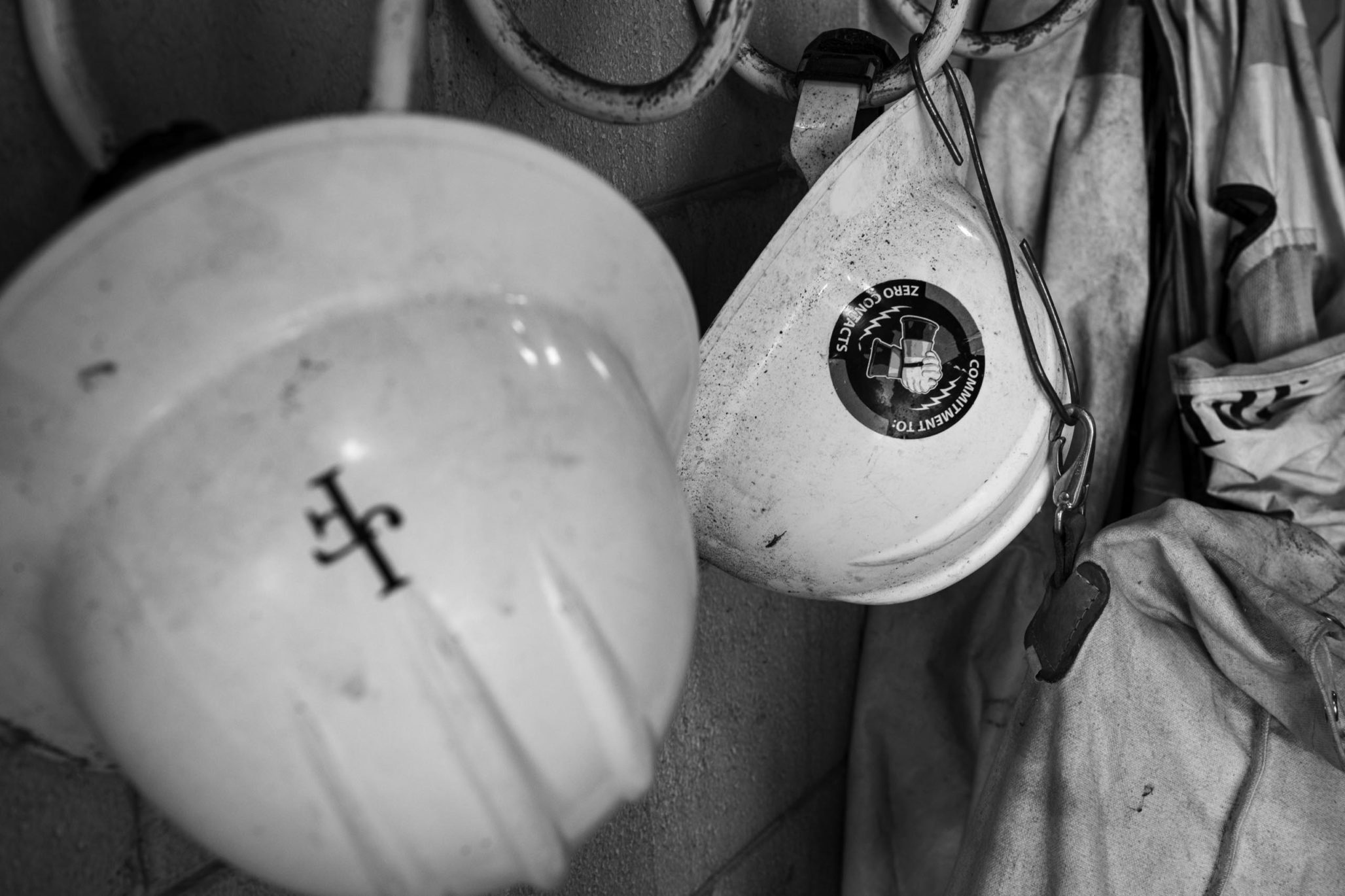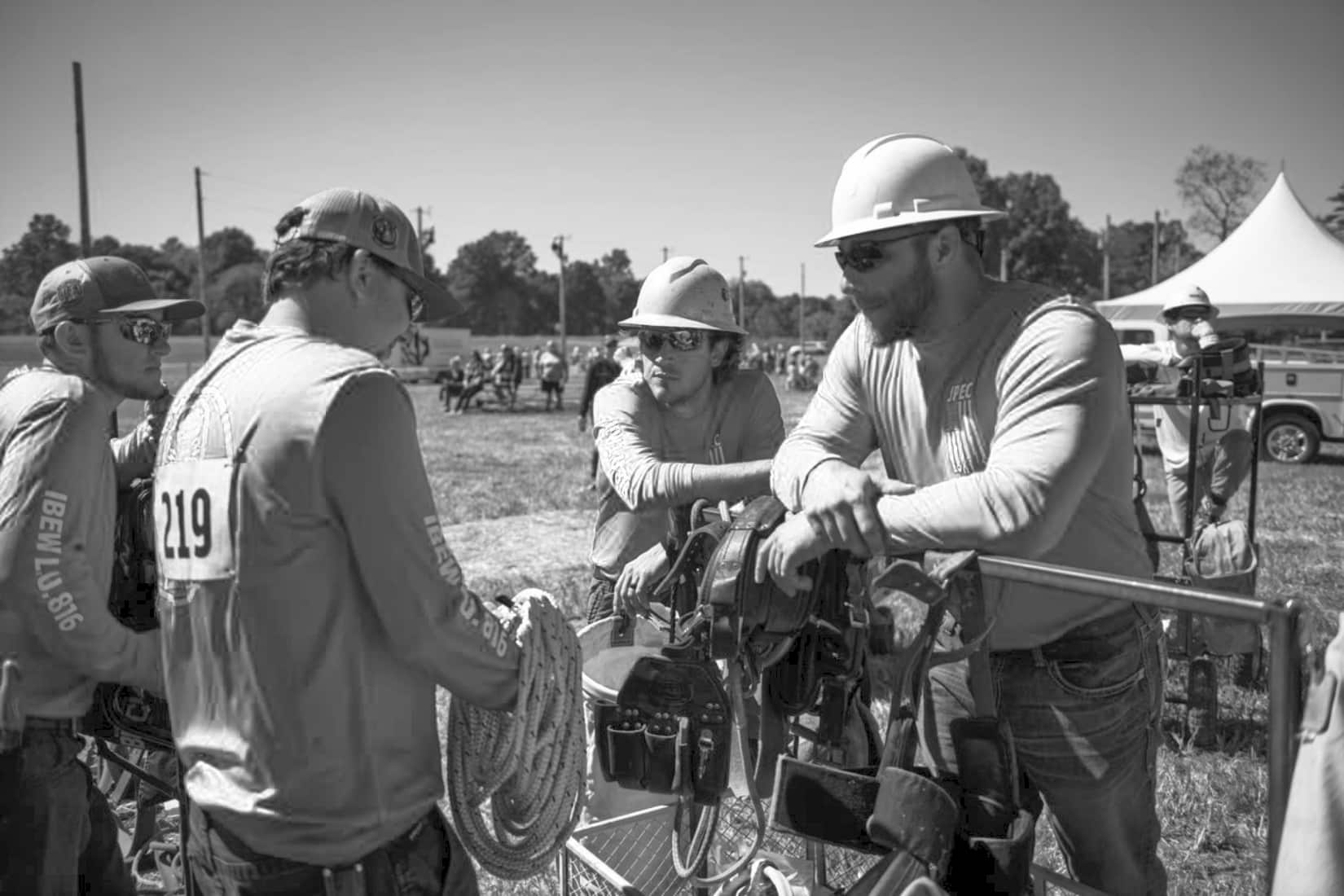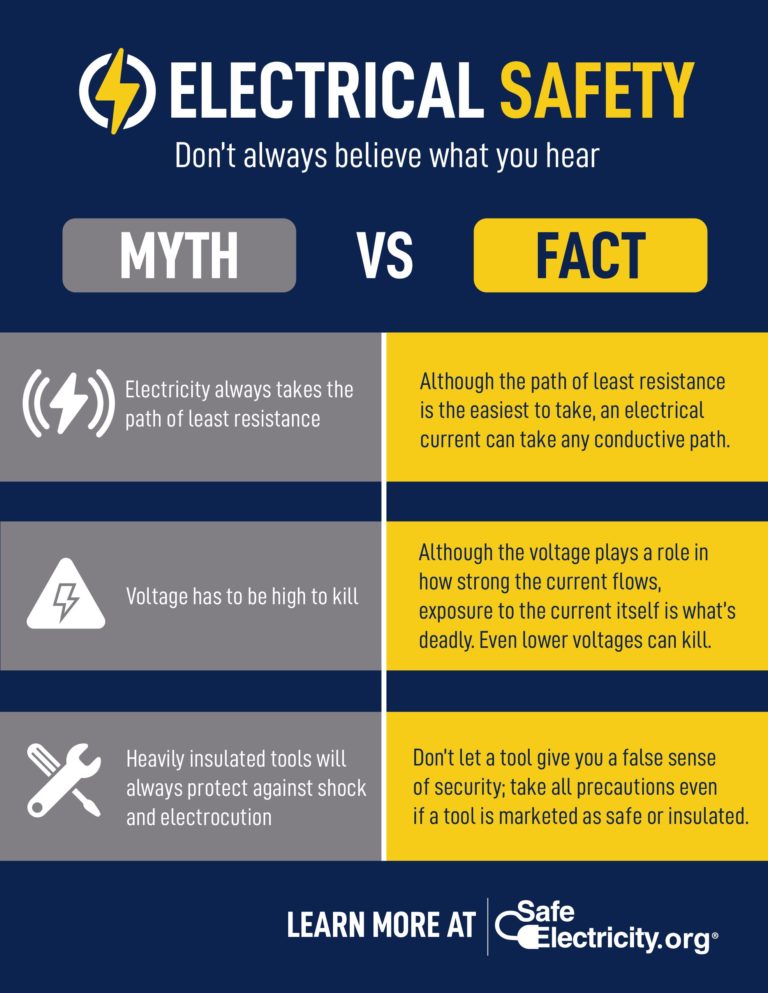Electrical Safety
Electricity lights homes and businesses, provides warmth and keeps appliances and equipment running smoothly. Jackson Purchase Energy Cooperative wants to provide these electrical safety tips to avoid hazards both inside and outdoors.
Staying safe on the road
- If you see a downed power line, call 9-1-1 to report it and stay in your car. You cannot tell by looking or listening if the power line is deenergized.
- Do not drive over a downed power line.
- The only time you should exit is if your vehicle or cab is on fire. If this is the case, make a solid jump from the car or cab without touching it, landing with both feet together. Then, hop away with your feet together as far as you can.
Staying safe outside
- Keep at least 10 feet away from overhead power lines. Keep any items you are carrying or using, such as long poles or other extended equipment, 10 feet away from power lines at all times.
- Make sure that all outside outlets are ground-fault circuit interrupter (GFCI) protected.
- Before digging, call 8-1-1 or your state’s underground locating service. Buried lines such as electric, gas, water, sewer and other lines bring services indoors.
- When you see lightning, take shelter inside the house, shop or a hard-topped vehicle for protection. If you are swimming or in a hot tub, get out. Water is an electrical conductor that is dangerous during a storm.
Staying safe inside
- Have a qualified electrician/licensed contractor check for hazards if you notice the following: dimming lights, a sizzling or buzzing sound, the smell of warm plastic, a switch plate that feels warm or looks scorched, sparks when plugging in or unplugging items or circuits that trip often.
- When working with electrical equipment inside the house or shop, be aware that electrical equipment can spark when flammable vapors, gases or dust are present.
- Do not overstretch a cord or use frayed or damaged cords.
- During storms, lightning can enter homes through corded phones, televisions, radios or computers. Lightning can also travel through plumbing, so do not take a bath, shower or wash dishes when you see lightning strikes.
Follow us on Facebook and Instagram. You can also view our website at www.jpenergy.com.
Article Sourced from Safe Electricity
